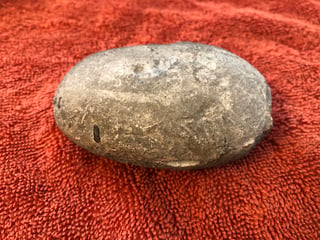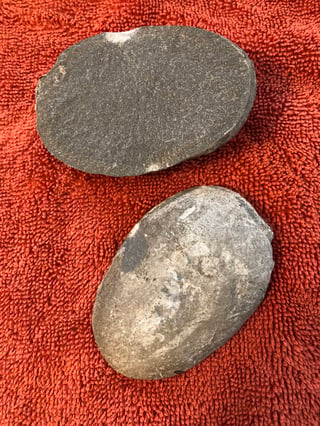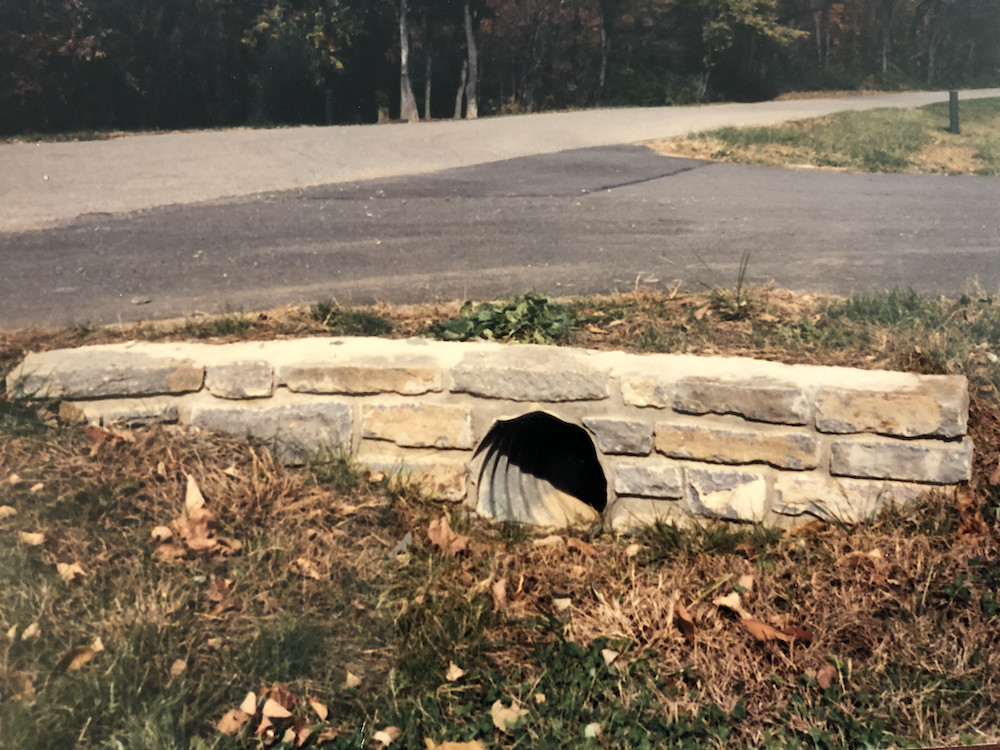My father, in his younger years, was a stone mason in Cincinnati Ohio. A couple of decades ago he was building a wall of some kind. He would fetch rock from a creek bed, haul it to the construction site, then shape it with what he calls a brick hammer.
After giving one rock a good whack, he found that it contained a smooth gray stone about the size of a child's fist. One side of the stone is a little darker than the other. When cracked open the stone appears fairly homogeneous.
How did this stone find its way inside the larger rock?
EDIT: Removed my speculation (cited by one answer) and other clutter. Added example of stone used for the wall.
(click to enlarge)


